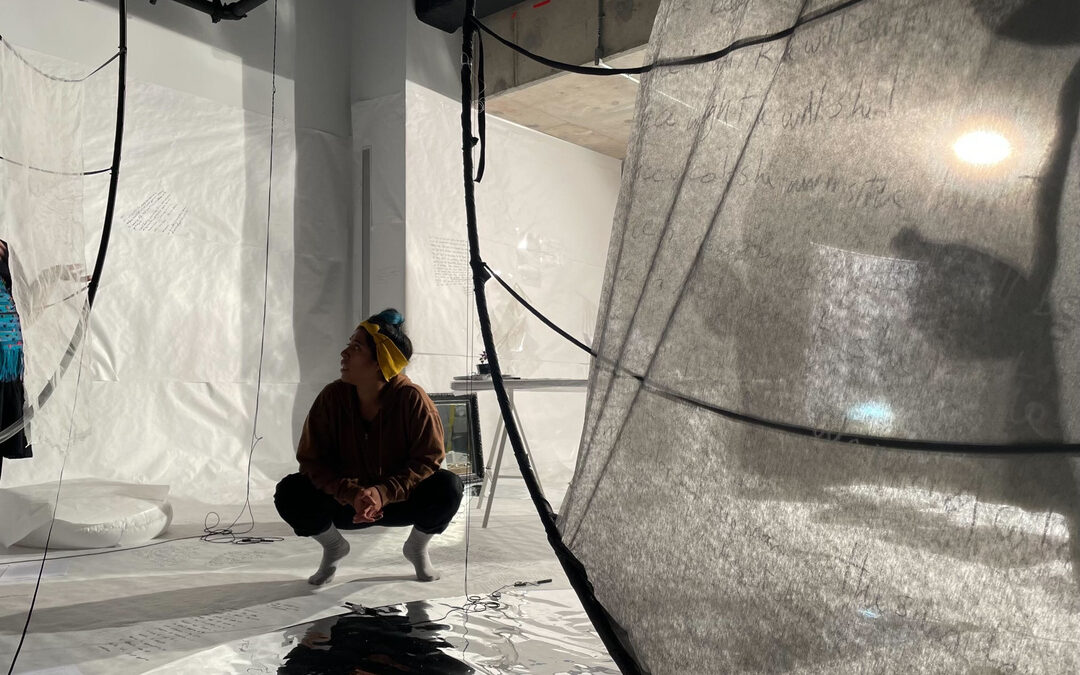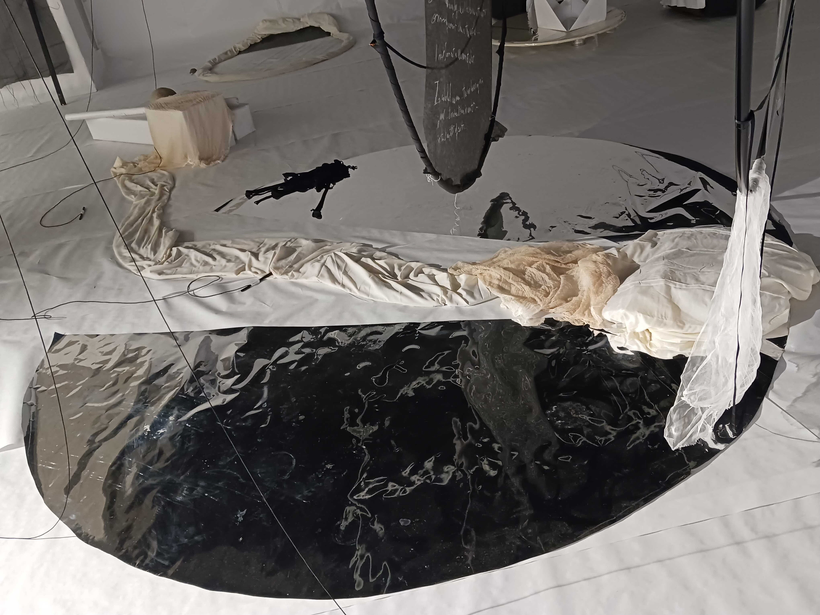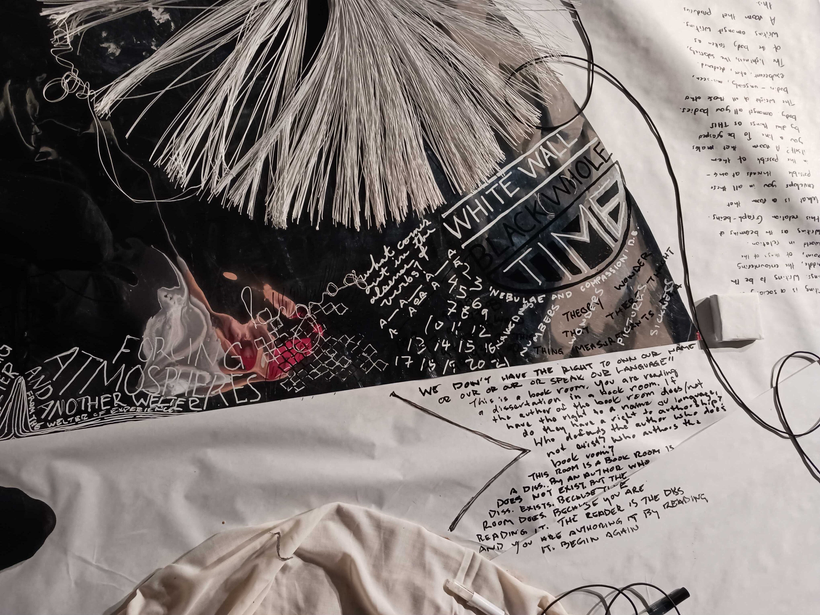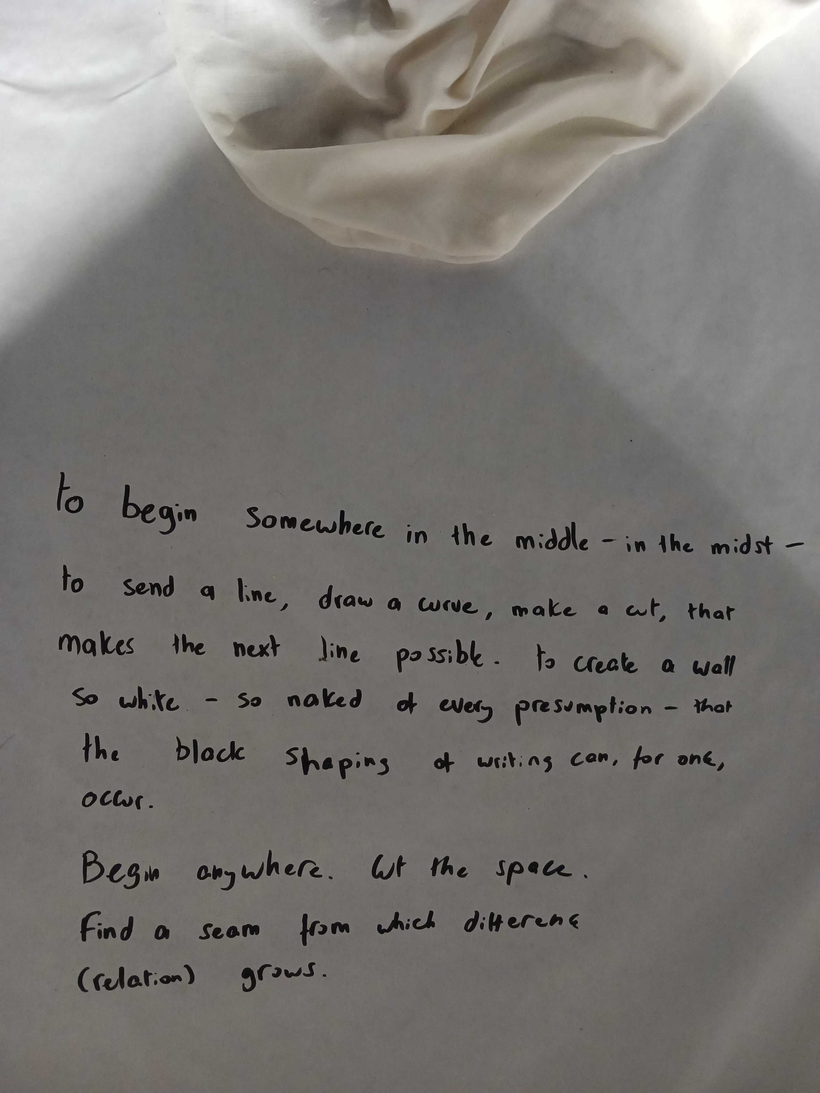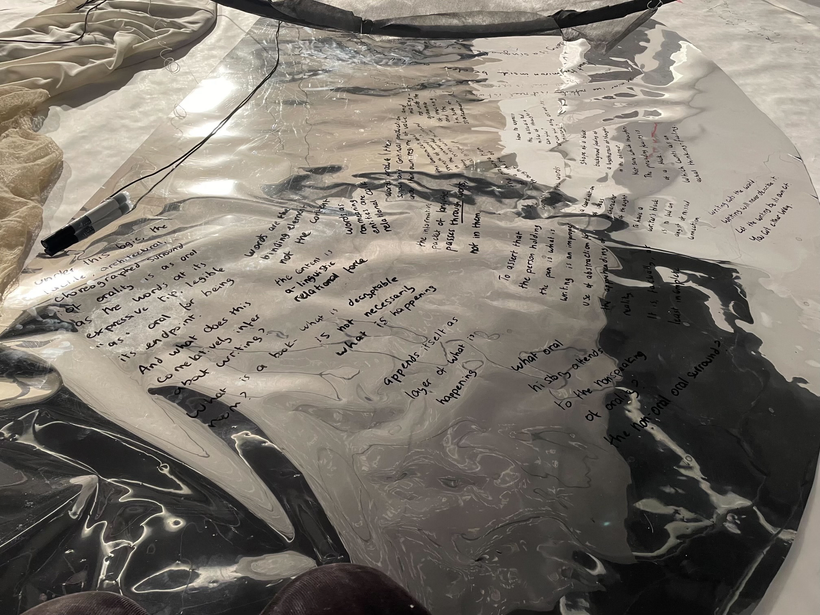Beyond Defending
3E’s Parapedagogical Techniques Fold Back Into the University in the form of a radically non-neurotypical PhD and PhD defence
Erin Manning recounts:
The world shifted a bit on its axis today. We felt it when Mayra Morales spoke at the end of Xece Khadija Baker’s doctoral defence. There are many ways we could tell the story of the university’s endgame, and what it means to move through it (and of course when I say university, I do mean world). We could talk about the way methods are narrated as the conduit to knowing when actually all they do is police it; we could talk about who even gets to register as a knowledge holder; we could talk about value more broadly and the way credits are bought and sold in the belief of excellence. None of that came up today – there was no room to give in to that logic which had strangled Xece throughout the almost-decade of her doctoral studies. We did talk about how Xece’s language was stolen, how as a Kurd, she couldn’t speak her name and had to learn about her history in the secret between-times of her grandmother cooking, of siblings playing, in the gardening… And we recognized the ongoing theft of her voice during the PhD when she was told that while these stories were of interest, they would only “count” if she could transcribe them into the “meaningful” language of the institution (“what is your method?”). Oral history, she was told, was wonderfully decolonial, but only when written. Xece couldn’t write these stories. She tried. But the words wouldn’t grow together to make sentences. The language just wasn’t there for them in the depleted halls of the colonial institution that wanted, as Syria had already done, to dictate the boundaries of what counted as value, of what should be spoken, and in whose name (because of course writing meant citing which meant delineating into the registers of what already counts as knowledge). But Xece’s way is not frontal, so she didn’t say much about it. She kept making art. She kept raising her beautiful boys and learning about what it means to have an autistic child as a refugee – of the fear of having your child taken away, of being deemed lesser because of your inability to speak the colonial language “properly,” let alone, neurotypically. Of course she registered their discounting of her ways. And recognized when they didn’t consider her smart. And noticed when they made excuses for neurotypicality. But together, we tried to keep the violence at bay, conceiving of techniques for keeping alive the qualities that make the everyday possible. In artistic practice collaboration has always been foregrounded. Why not in academia? In 2018, I petitioned to be allowed to write Xece’s thesis. My request was turned down. And so we turned to others. First to Emma Flavian for the proposal and then to Mayra for the final submission. Languaging is not born of the subject. It grows in the acrossness of a care for all that moves beneath it. When we handed in the document in preparation for the final defence 8 weeks ago, I was clear: these were neither Xece’s nor Mayra’s words, and this wasn’t the “thesis.” This was what languaging could do in the transversality of a movement of thought that couldn’t be reduced to one – one person, one project, one orientation. The writing as we saw it was a path to the doctoral defence, since it is stipulated that a doctorate in research-creation requires 150 pages of text, and the text has to be handed in before the defence can be set in motion. The text is of course breath-taking, not least of which because it will always take your breath away to read the care in this kind of gesture of thinking-with. But what we were actually defending was the opportunity to show that languaging grows through emergent collectivity. We called this The BookRoom. Last week, Mayra and Emma grew a BookRoom with Xece, a living space for languaging. Many many people came through, writing on the walls, the floors, spending time reading and sometimes responding to what was there. Some people sent work, which was transcribed. And today, it was the BookRoom that was defended. Except there was no defence. There was instead a continuation of a deeply moving collective writing that began with the external Rachel Gorman’s exquisite opening, which was truly an engagement with all that languaging can do in the cracks where words are not quite there, and other ways of saying are just emerging. From that moment on, something rare became possible. We could engage with each other. Thank you to Jessica Vorstermaans and Shira Avni and Lynn Hughes and Linda Swanson for carrying the shape it took. I have never been to a defence where long after the doctorate was awarded (outstanding!), the conversation continued, the room vibrating with the belief in the world generated by the event. This is what Mayra made felt: that there are practices like these that make worlds livable; that we can not, should not accept what passes as ‘education’ in so many places, especially for our children; that neurodiverse ways of moving and thinking really do make a difference; that colonial, neurotypical modalities are not simply inconvenient: they kill us.
Congratulations, Dr. Baker. It was an honour to be alongside.
Dr. Erin Manning, Research Chair – Speculative Pragmatism, Art, and Pedagogy, Director, SenseLab, Concordia University

